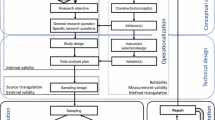Abstract
Graduate students can face difficulties collaborating across disciplines and outside of academia. Stakeholder-engaged research (i.e., research involving partners outside of academia) presents challenges for developing a project, finding collaborators, and co-creating knowledge. Past reflections on how to navigate stakeholder-engaged research assume a faculty member leads the project and do not often address implementation from a student-led approach. In this paper, we provide insight on our team science process from an applied, graduate student perspective. We reflect on the formation of our student team and the implementation of a tourism planning research project with community partners. We discuss challenges and focus on practical tips to overcome these challenges. Specifically, we include reflections on co-developing a research project, building authentic partnerships, negotiating power dynamics, and the role of institutional support. Lessons learned from this project can guide other graduate student teams working with stakeholders, as well as faculty seeking to train graduate students in stakeholder-engaged research.

Similar content being viewed by others
Data availability
There is no dataset available for this paper.
References
Cundill G, Roux DJ, Parker JN (2015) Nurturing communities of practice for transdisciplinary research. Ecol Soc 20(2):22. https://doi.org/10.5751/ES-07580-200222
Fischer J, Gardner T, Bennett E et al (2015) Advancing sustainability through mainstreaming a social–ecological systems perspective. Curr Opin Environ Sustain 14:144–149. https://doi.org/10.1016/j.cosust.2015.06.002
Heiden T, Saia T (2021) Engaging stakeholders for research impact. Am Ins Res https://ktdrr.org/products/KTDRR-Stakeholder-Engagement-Brief-508.pdf. Accessed August 15, 2023.
Horne L, DiMatteo-LePape A, Wolf-Gonzalez G, Briones V, Soucy A, De Urioste-Stone S (2023) Climate change planning in a coastal tourism destination, A participatory approach. Tourism and Hospitality Research 23(4):549–563. https://doi.org/10.1177/14673584221114730
Lowry KW, Ford-Paz R (2013) Early career academic researchers and community-based participatory research: Wrestling match or dancing partners? Clin Transl Sci 6(6):490–492. https://doi.org/10.1111/cts.12045
McGreavy B, Silka L, Lindenfeld L (2014) Interdisciplinarity and actionable science: Exploring the generative potential in difference. J Community Pract 22(1–2):189–209. https://doi.org/10.1080/10705422.2014.901264
Meyer SR, Levesque VR, Bieluch KH, Johnson ML, McGreavy B, Dreyer S, Smith H (2016) Sustainability science graduate students as boundary spanners. J Environ Stud Sci 6(2):344–353. https://doi.org/10.1007/s13412-015-0313-1
Rissman AR, Barrow L (2019) Characteristics of collaborative, interdisciplinary, and engaged research among graduate students in environmental conservation. J Environ Stud Sci 9(3):297–310. https://doi.org/10.1007/s13412-019-00553-0
Silka L (2013) “Silos” in the democratization of science. Int J Deliberative Mech Sci 2(1):1–14. https://doi.org/10.4471/demesci.2013.06
Wilson MN, Laufer AE, Howard EM, Wong-Ala JATK (2021) Lessons from the trenches: Students’ perspectives of their own marine transdisciplinary education. Front Mar Sci 7(January):592368. https://doi.org/10.3389/fmars.2020.592368
Acknowledgements
We would like to thank Alf Anderson, Michael Boland, Stephanie Clement, Rich MacDonald, and Abe Miller-Rushing. We would also like to thank to following faculty at the University of Maine: Sandra De Urioste-Stone, Daniel Hayes, Sabrina Morano, Sarah Nelson, Parinaz Rahimzadeh-Bajgiran, and Jay Wason.
Funding
This work was funded by the University of Maine Senator George J. Mitchell Center for Sustainability Solutions. Additional funding to support student researchers came from the NSF-NRT Conservation Science Program (grant 1828466), NOAA (grant NA17OAR4310249), USDA NIFA (McIntire-Stennis project number ME0-42017), the USDA-AFRI Agriculture and Natural Resources Science for Climate Variability and Change (AFRI ANRCVC) Challenge Area Program (grant 2018–69002-27933), and the UMaine Department of Ecology and Environmental Sciences. This research was approved by the University of Maine Protection for Human Subjects Review Board (application # 2021–02-08).
Author information
Authors and Affiliations
Corresponding author
Ethics declarations
Competing interests
To the best of our knowledge, no authors have any conflicts of interest.
Human subjects
This study was approved by the University of Maine IRB (application # 2021–02-08).
Additional information
Publisher's Note
Springer Nature remains neutral with regard to jurisdictional claims in published maps and institutional affiliations.
Rights and permissions
Springer Nature or its licensor (e.g. a society or other partner) holds exclusive rights to this article under a publishing agreement with the author(s) or other rightsholder(s); author self-archiving of the accepted manuscript version of this article is solely governed by the terms of such publishing agreement and applicable law.
About this article
Cite this article
Horne, L., Soucy, A., DiMatteo-LePape, A. et al. Reflections of a graduate student team on developing and implementing a transdisciplinary research project: Challenges, recommendations, and lessons learned. Climatic Change 177, 64 (2024). https://doi.org/10.1007/s10584-024-03715-4
Received:
Accepted:
Published:
DOI: https://doi.org/10.1007/s10584-024-03715-4




